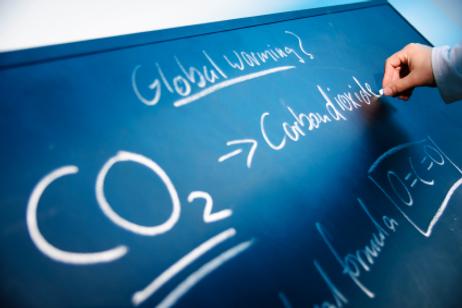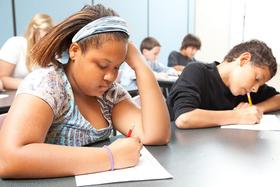Forget Adam and Eve or sex education. The latest curriculum controversy surrounds global warming. In fact, South Dakota’s legislature recently passed a resolution that called for the “balanced teaching of global warming.” Global warming, the resolution states, is “a scientific theory rather than a proven fact.”
Some States Mandate That “Both Sides” of Global Warming be Addressed
According to the New York Times, South Dakota is not the only state to have introduced legislation addressing the question of how global warming should be taught in schools. Among the other states that have taken or are considering such steps include:
- Texas - The Texas Board of Education declared in 2009 that public school teachers must present both sides when discussing global warming and evolution.
- Kentucky – A bill recently introduced in the Kentucky legislature encourages teachers to discuss “the advantages and disadvantages of scientific theories,” as the Times reports, including “evolution, the origins of life, global warming and human cloning.”
- Louisiana – Louisiana’s state legislature passed a law in 2008 that says that the state board of education “may assist teachers in promoting ‘critical thinking’” on subjects such as evolution and global warming, according to the Times.
This video from PBS looks at attempts to rein in climate change education.
Why Global Warming and Evolution Are Linked Together
Legislators may be using the question of whether global warming should be taught as a theory or a fact as a tool in a larger ongoing battle surrounding teaching evolutionary theory in public schools’ science curricula.
Courts have often rejected efforts to ban the teaching of evolution from public schools because doing so violates the separation of church and state. However, when evolutionary theory is presented alongside other issues such as global warming and human cloning, those who want the concept out of schools can argue that they are simply fighting for “academic freedom.”
In an article on the controversy in The New Scientist, Steve Newton of the National Center for Science Education in Oakland, California, is credited with observing that “the US constitution restricts the teaching of religious ideas in state schools, but not the teaching of bad science.”
This video offers suggestions on how to teach lessons about climate change.
What Scientists and Science Educators Say
Existence of Climate Change is Nearly Unanimously Acknowledged
Geologist and University of California Davis professor emeritus Eldridge Moores tells Discovery News that politicians who talk about the need to teach students about “the debate” regarding climate change are off the mark. "What's missing in that equation is that in the scientific community there is no controversy,” Moores says. He adds that while there are “contentious points of disagreement” among climate scientists, there is “near unanimity that climate change is happening."
The movement to Teach “Both Sides” is About Politics Rather than Science
Eugenie Scott, director of the National Center for Science Education, tells Discovery News that “this is a political movement rather than an educational movement.” She mentions the number of scientific organizations who have made statements supported the conclusions of the Intergovernmental Panel on Climate Change – among them, the American Association for the Advancement of Science, the National Academy of Science, the American Geophysical Union, the Geological Society of America and the American Physical Society.
The political nature of the debate is evidenced by the fact that the South Dakota legislature was reportedly introduced after Al Gore’s climate change documentary “An Inconvenient Truth” was shown to high school students.
“Teaching the Debate” Requires More Advanced Knowledge than Students Possess
Scott also tells Discovery News that “Teaching the debates within the sciences in any meaningful way requires far more knowledge and background in statistics, physics, chemistry and biology” than most high school students possess, and should be left to the college and university level.
Climate Change Education Still in Its Infancy
The New York Times notes that while the evolutionary theory has been a mainstay of high school biology textbooks for years, climate change has only recently begun to be taught in schools. Thus, the debate over how it should be addressed in public school textbooks and classrooms may have a very real impact on what students of the future learn.
Joshua Rosenau, a project director for the National Center for Science Education, tells the Times that the Texas Board of Education’s stance on climate change can affect how science is taught in other states because textbook companies often tailor the content of their textbooks to meet the Texas board’s approval. “If a textbook does not give enough deference to critics of climate change — or does not say that there is a real scientific debate, when in fact there is little to none — they will have a basis for turning it down,” Rosenau says.
Who would have guessed that changes in our global temperature would spark such rigorous debate in our public school curriculum?
Questions? Contact us on Facebook @publicschoolreview.















